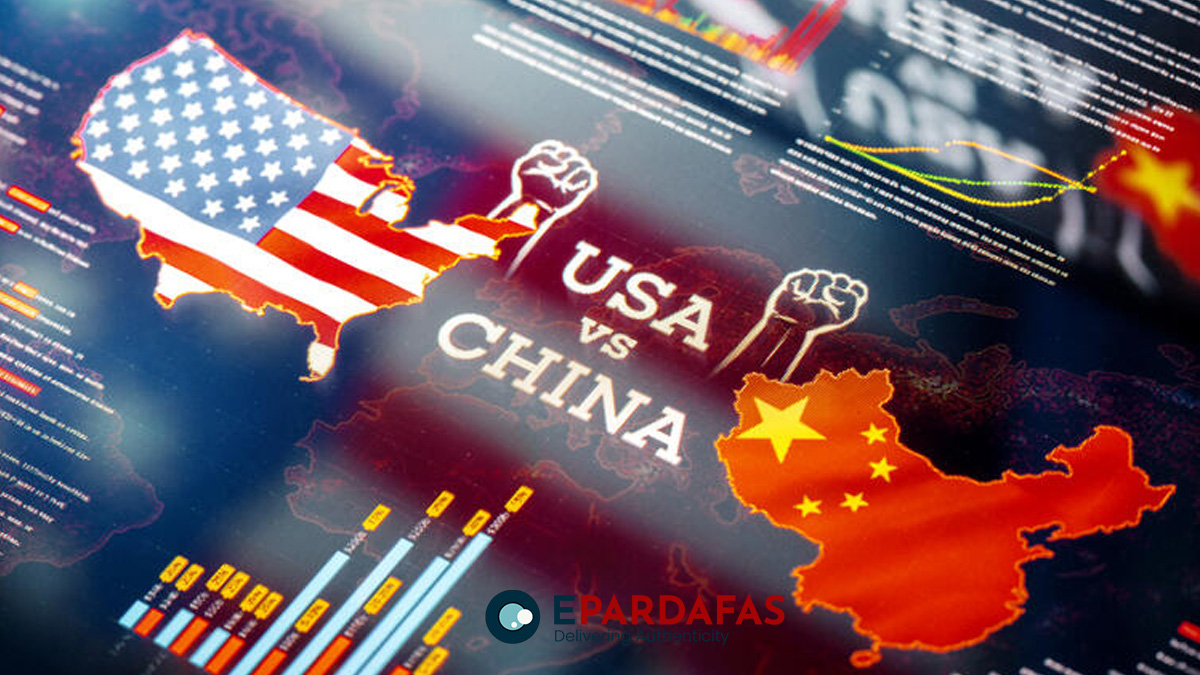
US Imposes Export Restrictions on Computer Chips to Middle East Amidst Growing Tech War Concerns
In a cryptic announcement, Nvidia, a leading US technology firm specializing in advanced computer chips, revealed that the United States government had imposed export restrictions on its most advanced chips destined for “some Middle Eastern countries.” However, neither the US government nor Nvidia disclosed the specific nations affected or the rationale behind these restrictions. This development has raised suspicions of an emerging “tech war” between the US and China expanding its footprint to the Middle East.
The Race for AI Dominance
The US has been striving to maintain an edge over China in the development of transformative artificial intelligence (AI) technology. To slow China’s AI progress, a key strategy has been to curtail Chinese access to computer chips or semiconductors crucial for the most advanced AI models. These materials are predominantly produced by US-based companies, with Nvidia being the global leader in this domain.
To this end, the US Department of Commerce introduced export restrictions on advanced chips to China and Russia last year. The recent announcement in August 2023 adds another layer to these export controls.
Unveiling the Affected Middle Eastern Countries
While neither the US government nor Nvidia has officially disclosed the impacted countries, several potential candidates have been suggested. Notable speculations include Iran, Saudi Arabia, the UAE, Qatar, and Israel. These nations have been singled out due to reasons ranging from demonstrated proficiency in hacking (Iran) to substantial financial resources (Saudi Arabia and UAE).
The Gulf states, rich in oil wealth, are fervently investing in AI to diversify their economies beyond oil dependence. Israel, on the other hand, is making significant AI investments, hosting several advanced chip manufacturers, including Nvidia’s subsidiary, Mellanox.
Reasons Behind the Export Restrictions
The US government justified these export restrictions by labeling AI-enabling chips as “technologies that are force multipliers for military modernization and human rights abuses.” Concerns have arisen that Chinese tech firms, such as Huawei, could exploit Middle Eastern countries as conduits to evade restrictions and obtain advanced chips.
A 2022 study by the Center for Security and Emerging Technology revealed that Chinese military acquisitions of AI-enabling chips often transpired indirectly, involving intermediaries like officially licensed distributors and shell companies.
Moreover, the Middle East’s growing ties with China over the past decade have deepened these concerns. Saudi Arabia and the UAE have witnessed significant collaborations with Chinese entities in the fields of technology and science. These linkages might facilitate the leakage of advanced chips to China, unintentionally or otherwise.
Impact on Middle East-US Relations
Despite these export restrictions, it is unlikely that the US perceives Middle Eastern countries like the UAE and Saudi Arabia as intentionally delivering advanced technology to China or Russia. Rather, concerns revolve around the potential exposure of Nvidia chips to espionage, reverse-engineering, or inadvertent transfer to China or Russia, given their substantial presence in Gulf nations.
Israel, while deepening its ties with China, remains a close US ally, enjoying a robust security partnership. Hence, these restrictions may not significantly affect Israel’s chip exports.
The export restrictions on computer chips to the Middle East represent another chapter in the ongoing global tech war between the US and China. This move underscores the seriousness with which the US regards the tech competition with China, especially in emerging technologies like AI. While driven by concerns over human rights and authoritarian use of AI, these restrictions may have broader implications for relations between democratic and autocratic states in the emerging technology landscape, further intensifying global geopolitical dynamics.















Comments